Say hello to King Betta, definitely a star in the vibrant world of Siamese fighting fish.
Imagine a regular betta now; picture it oversized. There you have it – the King.
Its impressive size is a clear hint of its regal title.
Every Betta fish, undoubtedly, needs a unique care guide.
There are peculiarities among different types, so getting the gist of your King Betta’s special needs is vital to ensure its health and happiness in your aquatic haven.
Table of Contents
Physical Characteristics of King Betta
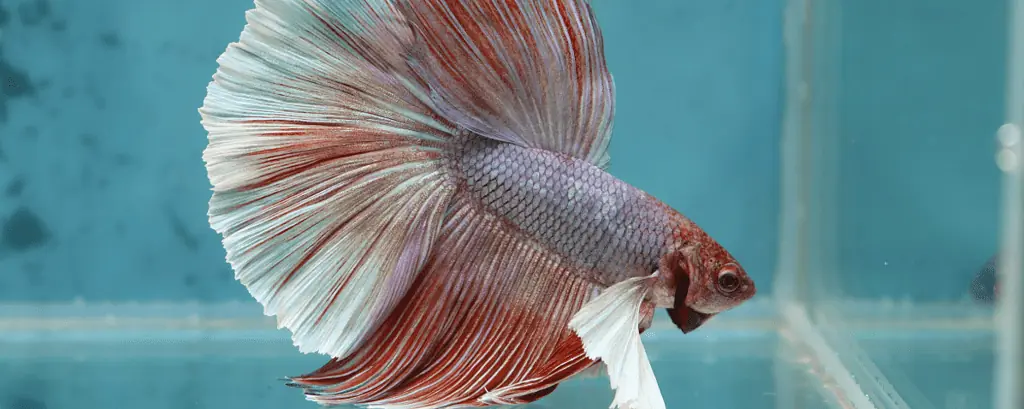
Appearance
Body Size and Structure
Have you ever pictured a heavyweight champ that swims? That’s the Giant Betta for you!
This impressive creature’s size is like a regular Betta fish on a grand scale, almost like witnessing an aquatic Godzilla.
Factors such as genes, diet, and overall care can influence this unusual bulkiness!
Color Variants
King Betta, undeniably a beautiful fish, glides through the color spectrum, leaving rainbows in the shadow of their brilliance.
While red variants are as common as grains of sand, unearthing a unique white one is akin to the elusive quest for Moby Dick.
Although colors ultimately boil down to individual taste, those rare hues often become the more coveted treasures.
Male vs. Female Differences
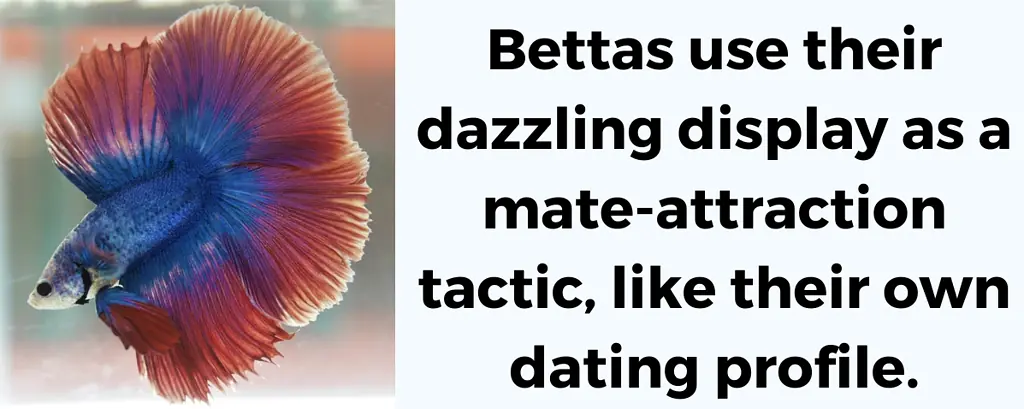
Size Differences
King Bettas, especially male king betta size, tend to break the usual size boundaries.
They show a noticeable size difference between a male and female king betta.
A gentle reminder here: always be mindful of their space.
The larger their size, the larger tank they would require, directly affecting their care and habitat needs.
Coloration and Fin Shape
Bettas are nature’s drama kings, boasting vibrant hues and broad fins akin to a human wearing a tuxedo.
Their dazzling display is a mate-attraction strategy, essentially their version of a dating profile.
Behavioral Differences
Betta fish, just like us, have unique personalities.
Some male Bettas behave like they’ve snagged the entire tank in a sale, while some females prefer a tranquil corner.
Their behavior impacts their tank environment and potential mates.
Size and Lifespan

Average Size
King Bettas might shock you with their size. Averaging around 5 inches, these giants are the titans of the Betta world.
Typical Lifespan
Your King Betta could stay with you for 3-5 years in a well-managed environment.
This span is influenced by diet, water quality, and stress.
So keep in mind, similar to ours, a balanced diet and stress-free lifestyle promote longevity and health.
Natural Habitat and Origins

Geographic Range
Also known as Siamese fighting fish, vibrant King Betta’s natural habitat hails from the tropical environment of Southeast Asia, enchanting people across Thailand’s tranquil streams, Vietnam’s serene ponds, and Malaysia’s lush rice paddies.
King Bettas flourish in the slow-moving, warm waters in these varying environments.
Water Conditions in the Wild
Freshwater fish like King Bettas are not particular about water conditions but thrive in a pH range of 6-8.
Temperature counts, too, generally hovering between 75°F (24°C) and 80°F (27°C).
Ever asked yourself, “What do King Bettas need to feel like they’re in a Vietnamese pond at home?”
No worries! These adaptable freshwater fish acclimatize to conditions that mirror their natural habitats.
They don’t mandate a professional aquarium that impeccably replicates native environments.
Designing a cozy space with warm, slow-moving water, slightly acidic to neutral pH, will make your Betta feel like swimming royalty!
Care Requirements for King Betta

General Tank Requirements for All Bettas
Let’s dive into Betta basics, specifically focusing on the Betta Splendens and Betta Imbellis, a Beverly Hills resident of the fish world who prefers the lavishness of something more like a king betta tank.
These fish blow bubbles of disapproval at tight fish tank spaces, favoring at least 5 gallons.
And bid adieu to the idea of stagnant water; they thrive in habitats with effective filtration and aeration.
These factors are quintessential for all Betta species; trust me on this!
Specific Tank Requirements for King Betta
Ideal Tank Size
King Bettas, the Betta world’s big hitter, needs more space.
Cramming a king-sized bed in a dorm? Bad plan.
Due to their large size, King Bettas require roomier tanks than their smaller brethren.
While some try to slide by with a 1-gallon tank, we recommend at least 5 gallons for any betta type.
Recommended Decor and Substrate
In decor, King Bettas leans towards minimalism. Choose decor and substrate that doesn’t crimp their style or space.
Opt for smooth stones, soft sand, or fine pebbles. More open water for King Bettas means a larger dominion.
Diet and Nutrition
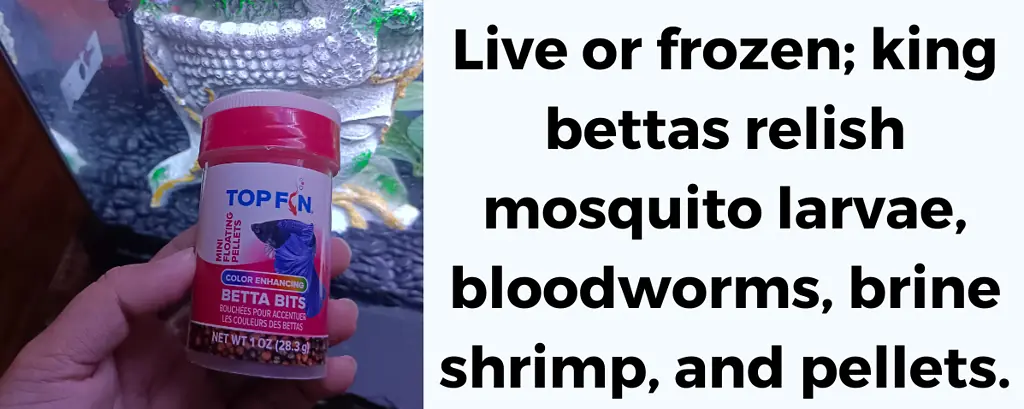
Types of Food
Craving variety, aren’t we? King Bettas thrive on a diet as diverse as an insect-infested jungle.
Be it live food, like mosquito larvae and other insect larvae, or frozen food favorites, such as bloodworms, brine shrimp, or pellets, it all hits the spot when you feed your king betta.
This scrumptious blend boosts their health, intensifies their colors, and keeps them as robust as a king should be!
Feeding Schedule
Curious about King Bettas’ meal times? Feed them twice daily with a meal size no bigger than their eye. Why?
Their stomachs match their eyeballs in size! While younger bettas eat more frequently, adults are fine with fewer meals.
Health Considerations
Common Diseases
Even the royal King Betta faces rough patches. Common diseases like fin rot and swim bladder are no joke and can escalate if neglected.
Keep our regal friends in stellar condition, monitoring behavior and looks and promptly dealing with any irregularities. When in doubt, consult your vet.
Preventive Care
Every great king has implied “Prevention outweighs cure.” This rings true for your King Betta.
Regular water changes, monitoring temperature, and occasional vet checks ensure its top shape.
Remember, a healthy King Betta is a chirpy one!
Behavior and Temperament

General Behavioral Traits
King Bettas, with their commanding presence and audacious antics, are the royalty of the aquatic realm.
They’re known for aggression, primarily during feeding or mating.
If your betta puffs its gills and flares its fins, it’s asserting dominance!
Known for their ceaseless curiosity, these creatures often come off as philosophers in fish form.
They seem engrossed in a remarkable exploration through their watery kingdom, each new adventure satiating their curiosity.
But their outward curiosity and aggression belie a calm solitude.
Much like a solitary king among the masses, King Bettas savor their quiet solitude and typically enjoy their own company.
Social Dynamics with Tank Mates
Don’t assume these royal Bettas reign solo. They accept tank mates only if they’re as chilled as a leisurely Sunday.
King Bettas aren’t the best match with fin nippers or belligerent species, prompting unwanted drama or aquatic stand-offs.
If your King Betta acts stressed—frantic movements or constant hiding—it may be time to re-evaluate its tank comrades.
Remember, a relaxed, happy Betta beams in vibrant colors and vivacious spirit.
So, the goal: Find harmonious tank pals for your Betta.
Imagine forming an escort for an underwater monarch – with gills.
It’s an intricate balance, but nail it, and you’ll witness your Betta having a wave of a time!
Compatibility and Tank Mates
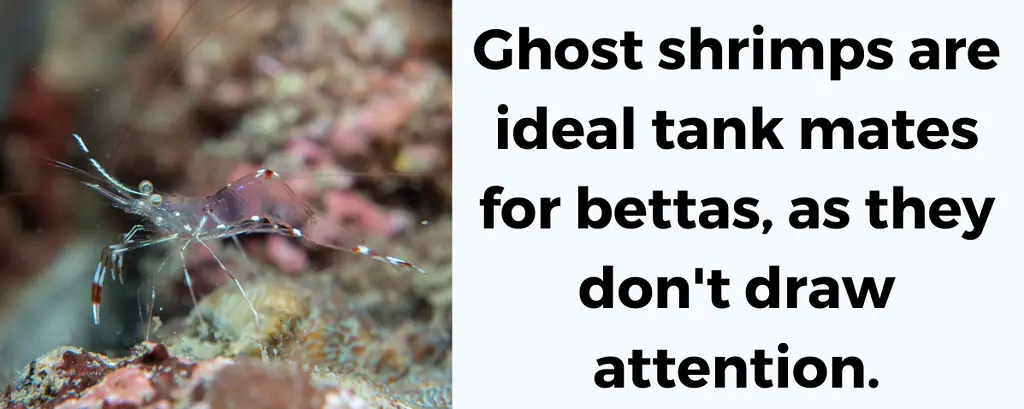
In the underwater world, the King Betta shines like a rockstar.
Still, this handsome diva can be quite picky about his tankmates.
Good Tank Mates
Selecting King Betta tank mates demands thoughtful planning.
Some fish species gel well; others, let’s say, aren’t invited for encores.
Here’s our lineup of dependable bandmates for this species of betta.
- Corydoras Catfish: These humble bottom-dwellers avoid the Betta’s path, an ideal crew for King Betta. They also keep the tank tidy, consider them backstage workers cleaning after the star.
- Ghost Shrimps: So inconspicuous that large Bettas overlook them, skillfully avoiding hostilities. They’re like groupies with all-access passes, safe from the limelight.
- Neon Tetras: Bright yet peaceful, these fishes balance their showy hues with a placid temperament. They provide an extra flair to the Betta’s headlining act.
- Mystery Snails: Calm dependables, these quiet mollusks work like tour managers, unbothered in their duties while housing good bacteria.
Species to Avoid

Sure, not every ‘sea fan’ is a good fit for the Betta’s green room. Here are a few notoriously fussy species of fish.
- Other Male Bettas: Two male bettas together are like two lead singers sharing a mic—not happening. Their feisty nature might spark an unneeded battle royale.
- Gouramis and Cichlids: Despite their sweet tunes, they’re known for rare tantrums. Their size and territorial flair can disrupt our chill crooner.
- Dwarf Frogs: They look like fun pals, but their speedy and lively antics can stress our Betta, a calm jazz player thrown into a thrash metal gig.
Remember, even the best-set shows may hit high notes.
Monitor your tank when shaking up species to ensure a smooth groove.
Breeding

Required Conditions
Breeding King Bettas? It’s all about ambiance.
Mimicking natural habitats is key – think water parameters, temperature, and decor.
They love soft, slightly acidic water around 76-82°F. Some floating plants?
Perfect for males to build bubble nests, the betta equivalent of ‘dinner’s ready’!
Water conditions are make-or-break. Hardness, pH, temperature – a romantic harmony or a chalkboard screech without proper control.
Common Challenges
It’s not always easy to breed these tropical fish; it can sometimes be challenging.
It demands meticulous attention to detail. For example, the male’s zealous courting rituals could cause stress or harm to the female.
In such instances, a backup plan, such as a separate tank for the female, proves beneficial.
However, consider it an underwater episode of “Betta Bachelor”; you can’t fault a fish for being eager.
Cost and Availability

Pricing Factors
Just like life insurance, King Bettas’ pricing isn’t fixed. The price depends on size, color, age, and the breeder’s reputation.
Brightly colored, sizeable, young fish from well-known breeders may cost more.
Expect to pay a bit more for these royal gliders!
Availability and Where to Buy
In ‘going fish shopping’ for your King Betta, pick sources as wisely as ripe avocados.
Visit a respected local fish store or trusted online aquatic sites.
Do the groundwork – ensure your Betta is from a place that values their regal nature.
Frequently Asked Questions
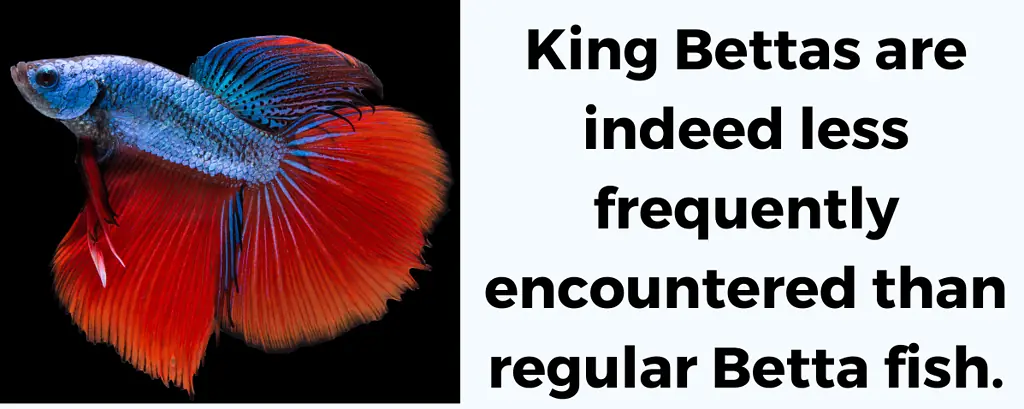
Are King bettas rare?
King Bettas are indeed less common than standard Betta fish.
However, with some effort, you can find these royal swimmers in many pet stores or online.
Are King betta fish more aggressive than other betta types?
King Bettas aren’t necessarily more aggressive.
Like people, their temperaments vary— not every king is a despot.
Are King bettas more difficult to care for?
Caring for King Bettas? Not as daunting as it sounds.
Like other Bettas, they require clean water, good nutrition, and ample tank space.
Think of it more as an enjoyable getaway, not a daunting journey.
A commitment, yes, but one filled with regal rewards.


